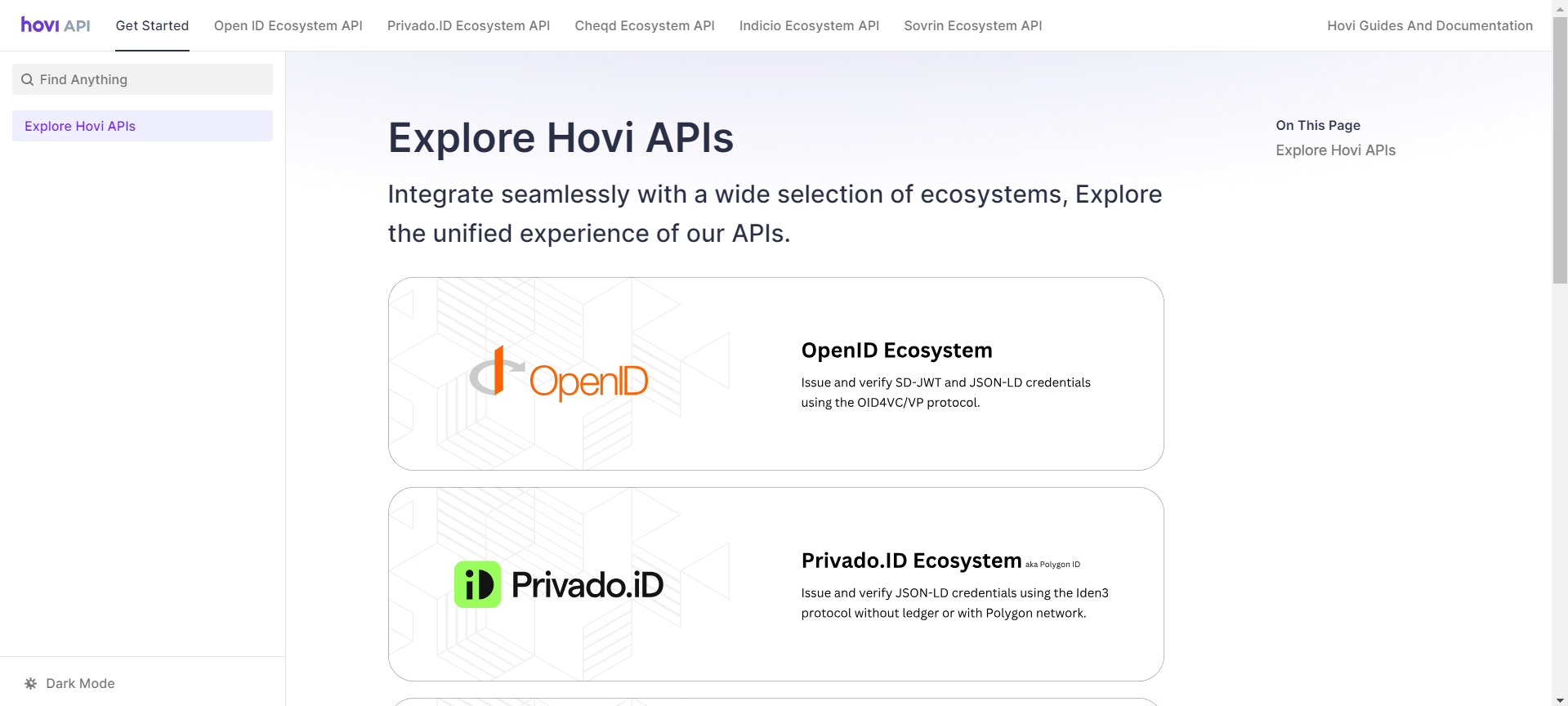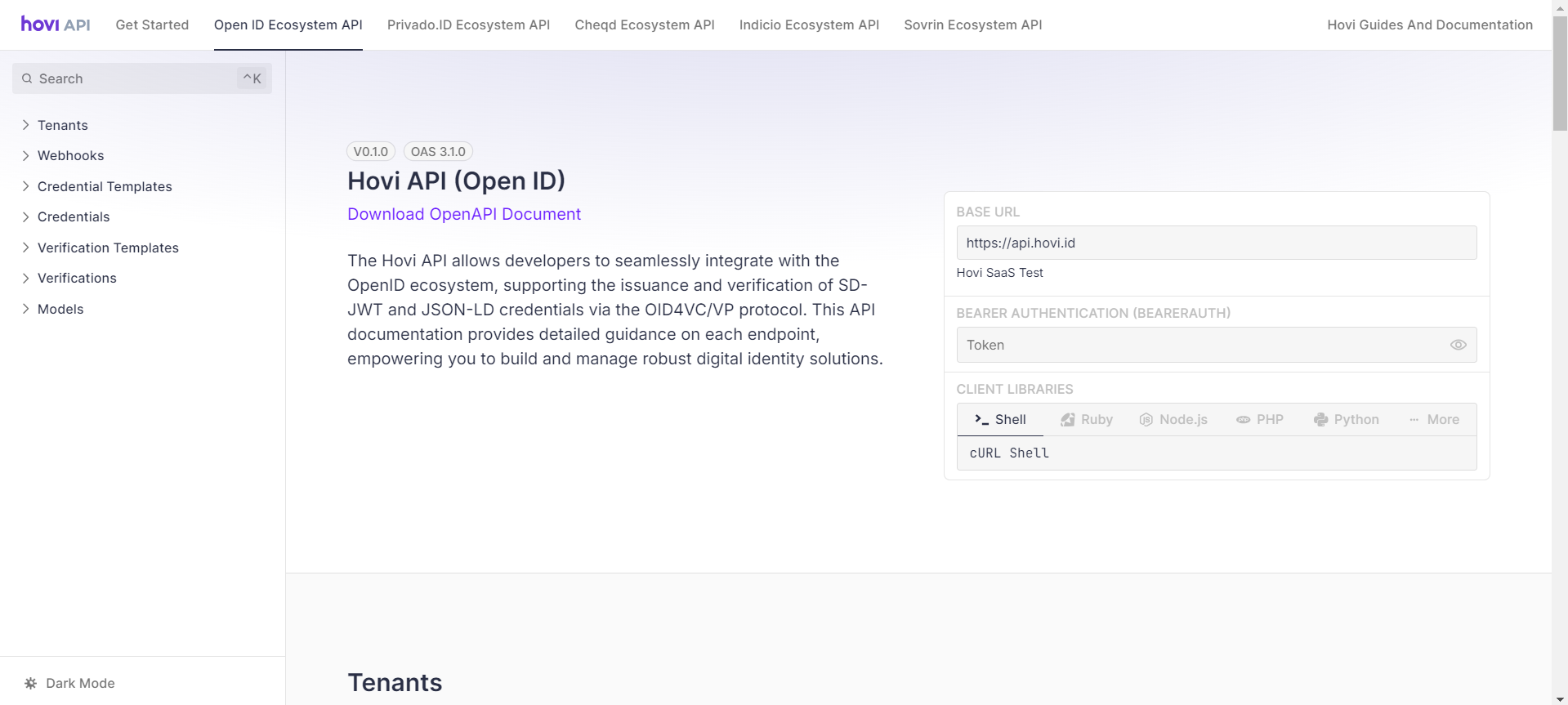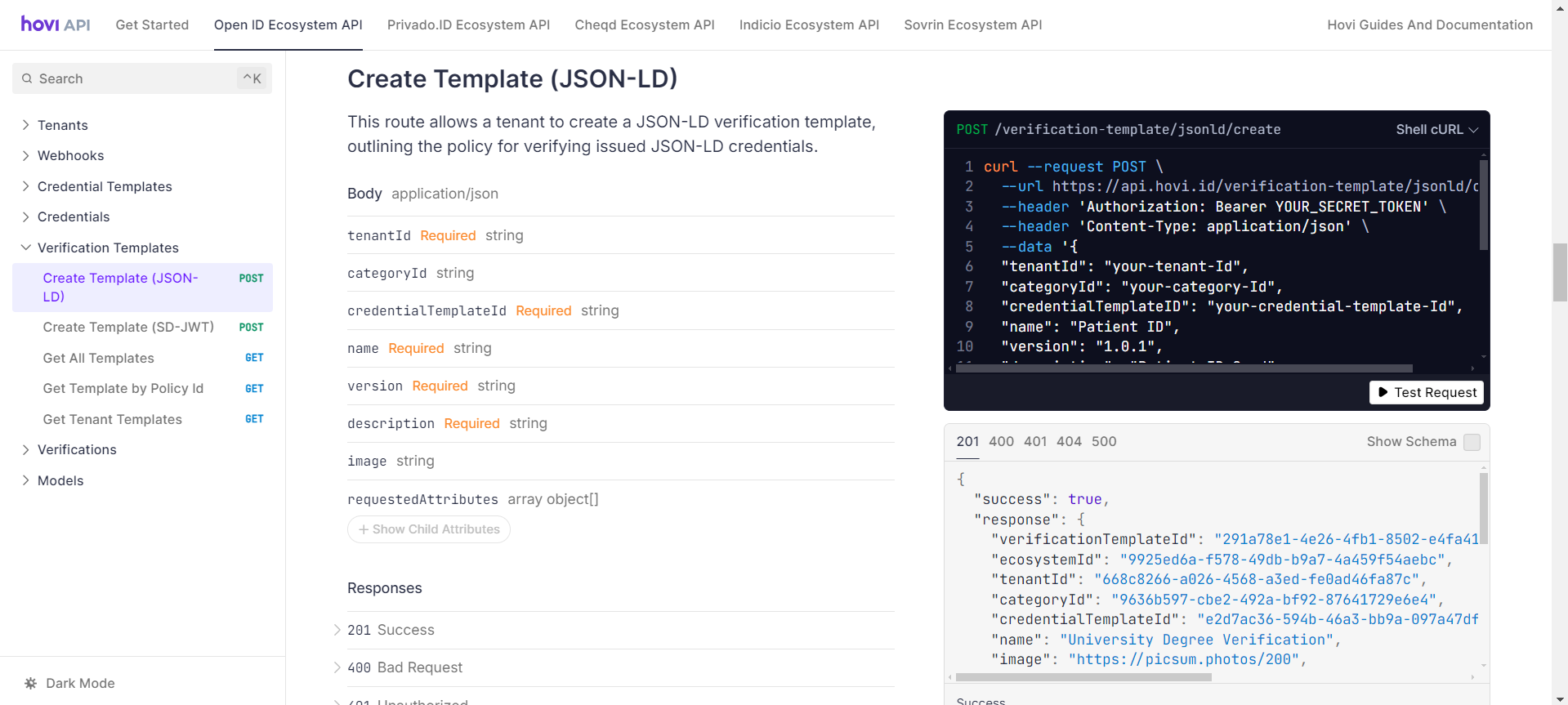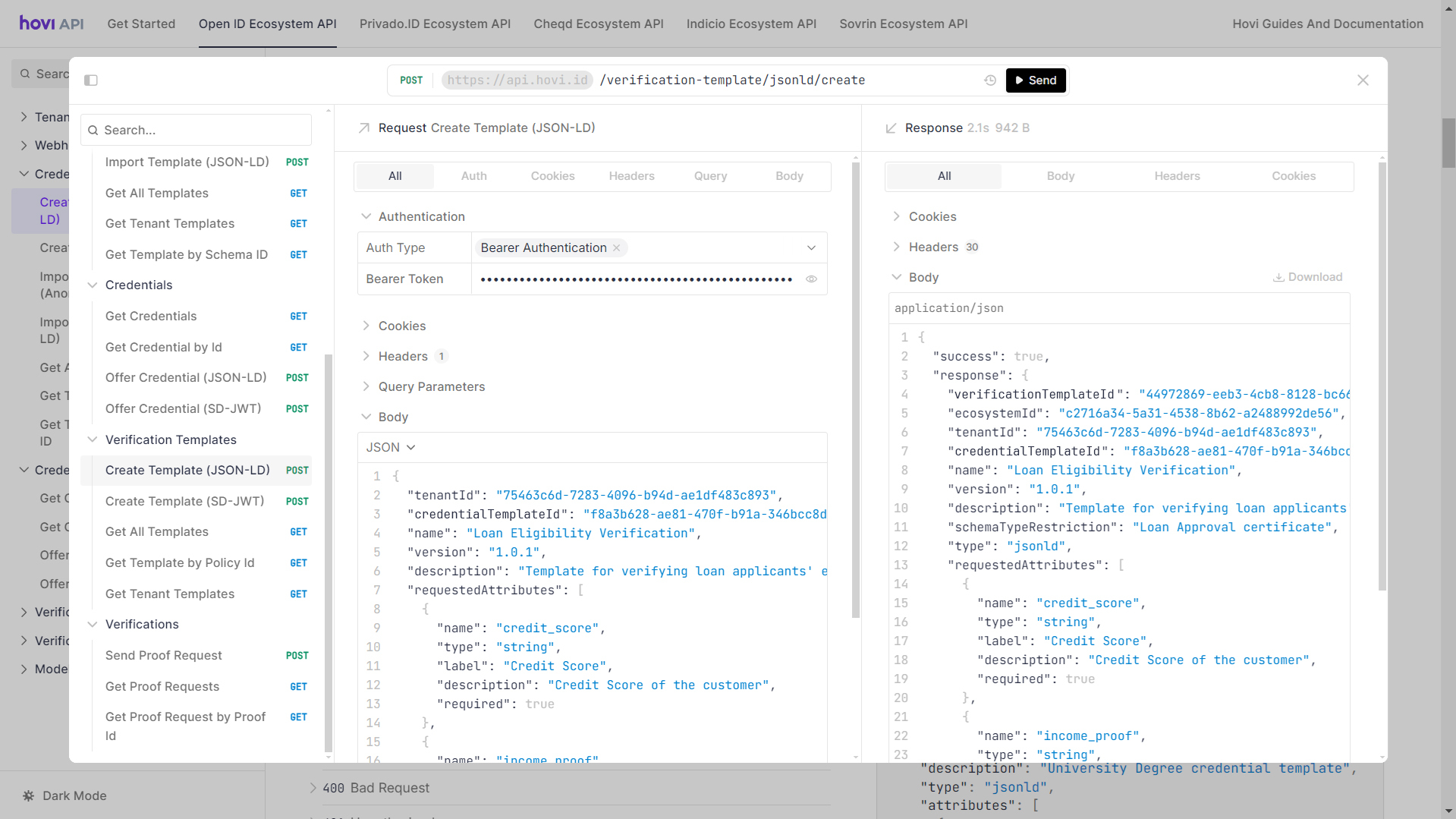Verification Templates
A Verification Template in Hovi is a predefined configuration that defines the criteria and attributes required to verify a specific type of credential. Verification templates enable tenants to specify the exact type of information they want to obtain.
Once a verification template is created, it can be reused for multiple verification requests within an ecosystem. A financial services company, for instance, can create a single verification template for KYC (Know Your Customer) checks and reuse it across all customer verification processes. This not only ensures uniformity but also simplifies compliance with industry regulations.
Hovi’s Verification Templates endpoints allow you to create, delete, update and retrieve reusable verification templates across your entire ecosystem. Depending on the ecosystem you have established, you can build verification templates for various credential types:
- OpenID Ecosystem: JSON-LD and SD-JWT credentials.
- Privado.ID Ecosystem: JSON-LD credentials.
- Indicio Ecosystem: AnonCred or JSON-LD credentials.
- Cheqd Ecosystem: AnonCred or JSON-LD credentials.
For more information, please refere here: Hovi Support Matrix
Example: Creating a Verification Template in the OpenID Ecosystem
Follow these steps to create a credential template in the OpenID ecosystem.
- Visit the Hovi API Reference.

- Select the OpenID Ecosystem API tab.

- Navigate to the POST- Create Template (JSON-LD) endpoint and click “Test Request”.

- Enter the API key as a Bearer Token, provide the body parameters, and click “Send”.

A new reusable verification template will be created.
Note that verification templates are not bound to be created via Hovi’s Credential Templates. They can be created for any credential type, regardless of whether it was issued through the Hovi platform. To create a verification template, simply use the credential's schema ID or context URL. Once created, these templates can be reused multiple times to verify the credentials.